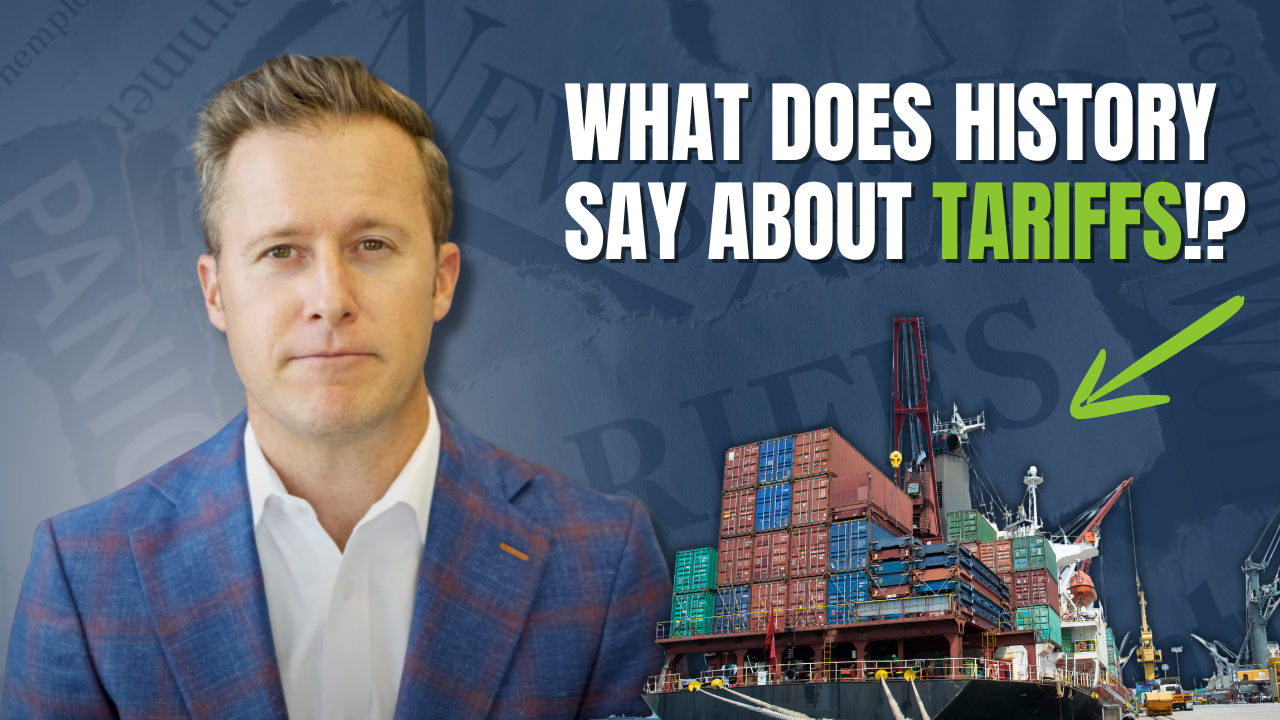If you’re one of the seventy million Americans participating in a 401(K), you’ve surely noticed your plan’s offerings are loaded with mutual funds. Your options may range from just a few funds to perhaps dozens, with aggressive growth funds alongside target-date funds, for example. These mutual funds provide ample opportunity to diversify your holdings and reduce your overall risk while enjoying the growth provided by the underlying basket of securities.
But if mutual funds are so prevalent, you might be wondering: why don’t you see Exchange-Traded Funds (ETFs) in your 401(K) plan? Don’t they offer the same benefits of diversification?
The difference lies in how each asset is structured and the implications those structures have on taxation and ease of administration. After all, there must be a solid reason most 401(K) plans primarily offer mutual funds over ETFs, right?
This begs the question – do ETFs have a place in your overall investment portfolio at all?
They likely do; it’s just a question of where. However, we can answer that question only by understanding the differences between each.
Taxation of Mutual Funds
A mutual fund is a relatively simple setup involving a fund manager who takes an investor’s cash and purchases stocks and other securities to place within the fund. When the investor wants to redeem their mutual fund shares, the fund manager may have to sell stock from within the fund to pay back the investor, potentially triggering a taxable gain that is spread amongst the collective holders of the mutual fund. The fund essentially buys back the mutual fund shares they issued to the investor.
The stocks within the fund may generate dividends, which the mutual fund must distribute to its shareholders, again triggering a taxable event. Finally, as the shareholder, you could face a capital gain based on the price difference between the original purchase price of the mutual fund and its sale price. In fact, you could even face a capital gains tax even if you’re selling your shares for a loss if the fund manager incurs a capital gain by selling profitable shares to cover your redemption. Conversely, a mutual fund manager may keep cash on hand for redemption purposes, which means more money is left out of the investment process, potentially weakening its performance.
Taxation of ETFs
ETFs are taxed very differently compared to mutual funds. When you purchase shares of an ETF, you don’t purchase them through the ETF issuer – you purchase them from another investor and sell them to a different investor. You never have to ‘redeem’ your ETF shares via the issuer, meaning the issuer never has to sell individual stocks to cover your redemption (unlike a mutual fund), thereby avoiding a capital gain.
Additionally, when the fund manager needs to adjust the ETF’s holdings to align with its objectives, this is often facilitated through an in-kind creation and redemption process. Authorized Participants exchange securities for ETF shares, or vice versa, allowing the ETF to update its holdings without triggering taxable events. This process might sound complex, but what’s important is that adjustments to the fund’s composition don’t generate a taxable event, unlike a mutual fund. These factors significantly contribute to the ETF’s overall tax efficiency, allowing more money to remain invested and potentially improving its performance.
It’s pretty easy to see that ETFs reign supreme regarding tax treatment. However, many of the ETF’s tax-advantages suddenly disappear or are diminished if you purchase a fund within a tax-advantaged account. So, if taxes aren’t a concern, perhaps there are other reasons mutual funds are preferred over ETFs. Let’s examine the administration of each within a 401(K).
Mutual Funds Ease of Administration
With their ease of administration, mutual funds shine within a 401(K) setting. Firstly, they aren’t traded throughout the day; instead, once their Net Asset Value is determined at the end of the trading day, trades are executed at that price, allowing for simplified accounting and record keeping. Clear records help ensure that the plan remains in compliance, ultimately easing the burden on the 401(K) sponsors (the employers).
Additionally, mutual funds often automatically reinvest dividends and capital gains, making things easier for the plan participant and helping to maintain the fund’s growth. Finally, sponsors and mutual fund providers often have long-standing relationships with all of the procedures in place to provide a seamless retirement plan offering for employees.
ETFs Administration Challenges
ETFs are amazingly simple for the individual investor, but they do present challenges for 401(K) administrators. Firstly, all participants need a brokerage account through which the administrator (or participant) can buy and sell ETFs. This brokerage will have its own fees and expenses that must be included in the 401(K) plan’s total costs.
Buying and selling ETFs will also generate transaction costs and introduce slippage, i.e., the bid-ask spread, which is the difference between the selling and buying price of the ETF. Frequent trading will only exacerbate these problems. All of these factors complicate record keeping and may require more sophisticated systems to track everything. If you are a 401(K) plan administrator, why go through the hassle of allowing ETFs?
When Do ETFs Fit in Your Portfolio?
Mutual funds seem to be the clear winners when it comes to the 401(K) – their tax burdens are mitigated by the tax advantages of 401(K) retirement accounts, and their structure simplifies the entire process for plan administrators and sponsors. So, when should we purchase an ETF?
Potentially Higher Mutual Fund Fees
ETFs typically seek to replicate a given index, such as the S&P 500; the fund manager’s primary job is to adjust the fund’s composition to mirror that of the chosen index. For these reasons, ETFs sometimes have lower overall fees than a mutual fund.
Many mutual funds are actively traded, meaning that the fund manager is attempting to outperform the market or a given benchmark, requiring specialty training and labor-intensive research and analysis, which could lead to higher fees.
However, over half of ETFs carry fees that align with average mutual fund fees, so it’s not so cut and dry as ETFs are cheaper; we also shouldn’t equate lower fees to better returns, as higher fees may be justified by superior performance – and that’s true for both ETFs and mutual funds.
If you are unsure if your chosen investments or 401(K) offerings have fair and justifiable fee structures, a financial advisor can conduct an analysis to help you make that determination.
You’ve Maxed Out Your 401(K)
If your 401(K) has funds suitable for your investment goals, you may decide to maximize your contributions. If you still have money left to invest, purchasing ETFs within an IRA or brokerage account may be your next best move. You’ll have greater overall tax diversification that could enable a more flexible withdrawal strategy in retirement.
Lower Barrier to Entry
Mutual funds often have minimum buy-ins that an investor may find unpalatable, ranging from hundreds to thousands of dollars, making it difficult for investors with limited capital to start investing. In contrast, ETFs can be purchased in single shares and possibly even fractional shares, allowing investors to enter the market with a much smaller initial investment.
Greater Flexibility
We shouldn’t forget the liquidity of ETFs. If you need cash quickly, having your funds tied up in a mutual fund in a 401(K) won’t do you any good. ETFs, on the other hand, can be sold throughout the day. Intraday trading also provides for quicker reactions to market movements – though this might not always be a good thing, as consistently predicting short-term movements of the markets is exceedingly difficult, if not impossible.
Final Thoughts
Naturally, mutual funds and ETFs aren’t your only investment options – we haven’t mentioned bonds or individual stocks, for example. In this article, we specifically compare ETFs and mutual funds because of their similarities and abilities to achieve the same objectives – a high degree of diversification achieved by money pooled together by other investors seeking to mitigate risk without sacrificing long-term returns within the equity market. Those other asset classes may very well deserve a spot in your portfolio but with a different function.
We aren’t saying you shouldn’t purchase mutual funds if the fees are high. Sometimes, you get what you pay for, and those higher fees may indicate a well-managed fund. Also, you may determine that the mutual funds offered in your 401(K) aren’t exactly ideal. Still, you also realize that, given the ability to day trade ETFs, your emotions may lead to expensive and potentially disastrous day trading. It’s much more challenging to offload a mutual fund, which is also why plan administrators prefer them – the point of a retirement account is to think long-term; buying and selling assets to seek short-term gains doesn’t usually go well with long-term objectives.
There’s one more factor that may be decisive—your 401(K) has limited options, and those options have been curated by a financial professional with your best interests in mind. Attempting to buy ETFs on the open market, with thousands to choose from, could become overwhelming and lead to choice paralysis or purchasing inferior assets.
Do you need help determining the best route for your savings? We’d be happy to help. Just click the button below to schedule a time that works for you.













